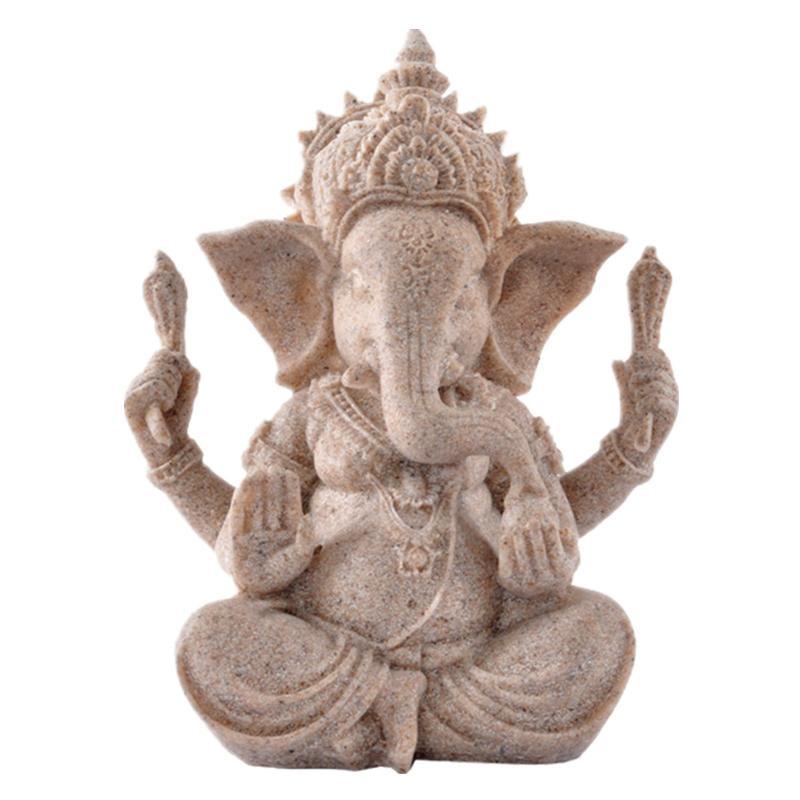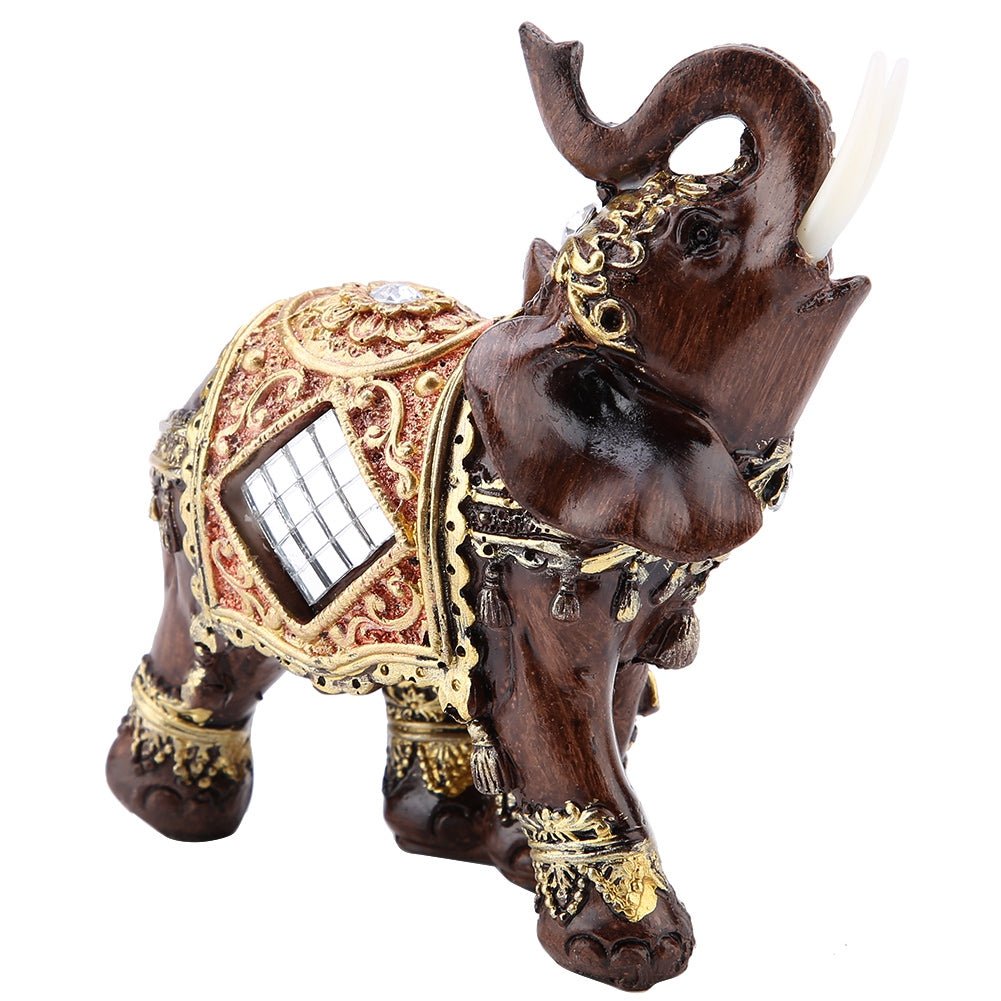What Is the (Real) Meaning of the Lucky Elephant?
The elephant is considered a prominent good luck charm in many cultures. Often, this animal is associated with intelligence, or sometimes also with a kind of “quiet strength”. Certain deities of Asian religions are also associated with it. We will talk about it in this article.
Generally, the lucky elephant is therefore seen as a sacred animal, the holder of great power and a symbol with astonishing powers.
We can therefore find ceremonies dedicated to them all over the world.
From Africa to Asia, across several religions and cultures, we will now focus on the lucky elephant and the different forms that its veneration can take.
Contents :
The white elephant: symbol of the kings of Thailand
The figure of the lucky elephant in Africa
The elephant in Hinduism
Hinduism is a religion known for worshiping thousands of different deities.
We could say to ourselves that there is necessarily one or the other which is linked to the figure of the elephant... And that is completely correct!
One of the most important gods in India shows us this well: Ganesh, the holder of knowledge, wisdom and intelligence, is represented in the form of a human with the head of an elephant.
Many temples are dedicated to him and thousands of people across the country pay homage to him through various ritual objects.
Typically, you can find statuettes of the god Ganesh such as this one from North or South India.
Beside this we could mention another god known as Indra.
This entity was once the king of the gods and, as a sign of his power, used an elephant as his mount.
Nowadays, Indra is seen more as the master of warriors. His elephant therefore went from a ceremonial animal to a real war machine, gaining qualities of ferocity and combativeness.
It is notably thanks to these two major divinities of Hinduism that the lucky elephant has become one of the most revered animals in the country.
Each year several ceremonies are held where the elephants are washed, covered with offerings and fragrant oils... all this to place the community under the protection of the gods we have mentioned.
The elephant in Buddhism
In Buddhism, the elephant is considered an embodied manifestation on earth of the qualities of the Buddha himself.
From the beginning of his life, Siddârtha Gautama, his birth name, was directly linked to the elephant.
When her mother became pregnant, she saw an immaculate white elephant appear to her in a dream. The animal then offered her a lotus coming out of its trunk, made three turns around her and penetrated her belly with one of its tusks.
As soon as she woke up, she immediately understood that her dream had meaning. He was right: it was a prophecy announcing to her that she would give birth to an enlightened being.
To learn more about this founding event of Buddhism, here is an article which tells you in more detail about this strange dream.
In short, since that day, the symbol of the elephant has been associated with Buddha, his birth and his powers.
Numerous representations of Buddhist religious art show us the Buddha meditating on the back of a pachyderm, the animal advancing slowly and serenely on its path while the man advances with him.
Along the same lines, the lucky elephant is sometimes used to represent higher qualities of power and wisdom.
When placed atop a pillar in a temple, custom holds that it “brings the light of knowledge to all.”

The white elephant: symbol of the kings of Thailand
We told you about the legend of the white elephant and the birth of the Buddha.
As its religion spread across Asia, this story made its way into many cultures.
However, there is one people who, more than the others, have given it particular importance: the Thais.
The white elephant (which in reality is a color closer to pink) has indeed become an important symbol of the power of royalty.
The animal was so revered in Thailand that it was even on the national flag until the beginning of the 20th century.
From the earliest times of their civilization, the Thais knew how to use elephants to their advantage.
They rode them on the battlefields, thus achieving crushing victories over their adversaries.
In the country's fields and rainforests, they used it to transport wood and goods.
According to some specialists, it is this use of animals that allowed Thai culture to prosper and survive to this day.
We therefore understand how the symbol of the lucky elephant could take such a place in local culture.

The figure of the lucky elephant in Africa
The African elephant is not exactly the same as the one we can find in Asia.
On this southern continent of the world, elephants are larger, more powerful and above all more aggressive.
While Asians have domesticated the species for millennia to help them work in the fields or in war, the African elephant has remained a wild and dangerous animal.
IF you don't quite see what separates these two types of elephants, here is a fairly detailed analysis of the main differences between them.
Obviously, these characteristics are found in the figure of the African lucky elephant.
In general, its impressive strength leads local cultures to see it as a symbol of masculine strength and fertility.
Their propensity for anger and the ease with which they become enraged have also connected them to the raw, primal power of the warrior.
Its defenses are thus reduced to powder to be used as an aphrodisiac stimulating the libido of men. This unfortunate use is also one of the main causes of “artisanal” poaching which still takes place today in certain regions of Africa.

So, what does the elephant bring us?
Elephants are strong and powerful animals. They are loyal to their family, determined in their choices and very protective.
Because elephants are very social animals, they are also seen in many cultures as a symbol of loyalty and friendship.
When we think carefully, these qualities are in fact linked to another present in our pachyderm friends: strength.
In terms of both its body and its mind, the elephant is solid and particularly stable. Speaking of strength and power, there is another area in which the elephant is king, and that is sexual energy. A male elephant in heat can indeed be uncontrollable, overflowing with energy and enthusiasm that contrasts with his usual calm.
By the strength and loyalty linked to it, the symbol of the elephant is also associated with protection. Many legends present this animal to us as a guardian for men, an attentive protector.
Through the impressive journeys it can travel, the elephant also symbolizes journeys (whatever they may be, physical or spiritual).
In summary, here is everything that the symbol of the lucky elephant will bring you :
- Strength, solidity and stability
- Fidelity and loyalty
- Male sexual energy
- Protection, especially during our travels

Conclusion about the elephant
The elephant has become a religious and cultural symbol in many countries.
Strong and calm, he sometimes put his qualities at the service of men. Yet its presence has haunted minds throughout the ages, forcing a feeling of fear and respect.
The visions that people have of it and the points of view on this oh-so-amazing animal can vary enormously from one country to another.
However, there are a few points on which everyone agrees. All over the world, you will hear that the elephant symbolizes:
- Intelligence
- Wisdom
- Patience
- The responsibility
- The calm force
- Tenacity
- Longevity, life expectancy
Clearly, this is only about positive qualities, character traits that we would most like to find in our loved ones, or sometimes in ourselves.
So, being interested in the subject of the lucky elephant is probably something deeper than many people realize.
No, we do not seek to place ourselves under the protection of a particular divinity, or to attract a certain benefit...
Despite these more than interesting uses, we place representations of lucky elephants to remind us every day of the importance of the qualities it demonstrates.
Like the elephant, we can become more serene, calmer and wiser beings.
Lucky charms featured in this article

Sandstone Statue of the God Ganesh
See more
Thai Royal Family Elephant
See more


